Seasonal Illnesses: Types, Causes, And Precautions To Take
Knowing how to read the signs well can get you back on your feet much quicker.
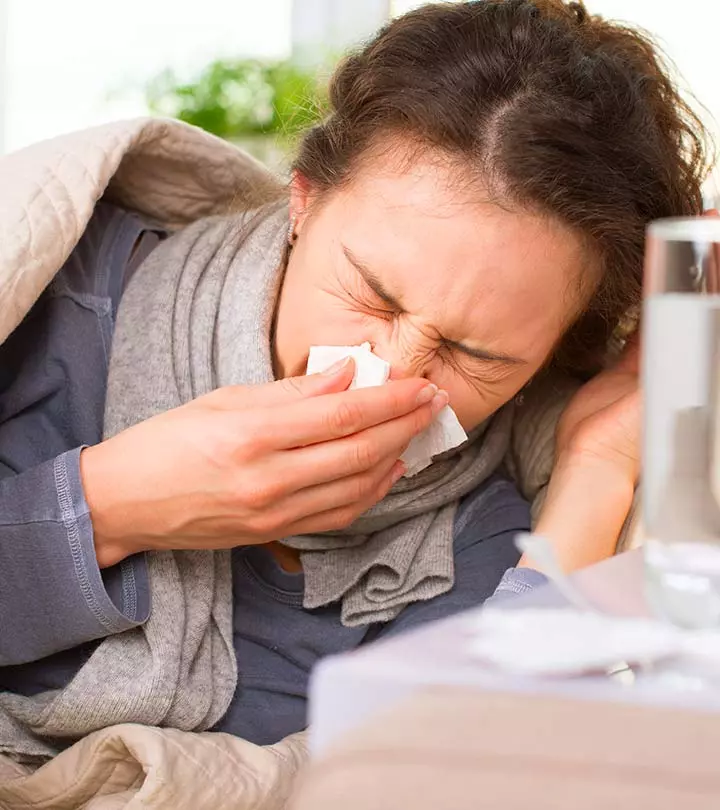
Image: shutter stock
There are a few diseases that are characteristic of each season. Spring allergies and hay fever in spring, Typhoid, malaria, and dengue in summer, hepatitis A and diarrhea in monsoon, and flu and bronchitisi Inflammation of the bronchial tubes that carries air to and from the lungs and causes coughing and difficulty in breathing. in winter are some of the seasonal diseases you should be aware of. While some of them go away with good food and some rest, others leave you feeling tired, taking time off from work, and in worst cases, hospitalization.
Diseases are natural calamities and are out of your control. What you can control are the measures you take in keeping yourself and your loved ones safe from them. Being aware of various seasonal diseases can reduce your hospital visits, stop you from missing work, and reduce your medical costs to a large degree.
Anyone who has been to the doctor for a visit knows that it is an expensive affair. The number of dengue cases reported to WHO increased over 8 fold over the last two decades, and an average of 5.2 million cases of dengue were listed every year (1). Unfortunately, this is excluding loss of pay, worker replacement costs, and reduced productivity (2). That is why it is essential to keep up with your immune shots, consume healthy and nutritional food and enough water and make sure that you adhere to personal hygiene. In this article, we will explore some of the diseases common in each season and a few precautionary measures you can take to keep you and your loved ones safe from them.
In This Article
Summer:

The common diseases of summer include mosquito borne diseases like malaria and dengue, diarrhoea, food poisoning, flu, water borne diseases like typhoid and jaundice, chicken pox, heatstroke and sunburn. The increase of temperature in summer helps bacteria multiply, thereby increasing the spread of many bacterial infections.
Avoid these summer diseases by taking the following precautions:
- Ensure that there are no breeding places for mosquitoes around the house
- Wash your hands thoroughly after being in crowded places
- Since food gets spoilt quickly due to the increase in temperature, make sure that leftover food is refrigerated at the earliest
- Avoid eating in unhygienic places, prevent dehydration and ensure you drink boiled water
- Avoid exposure to viral infections like seasonal flu and chicken pox
- Avoid going out between 11 am and 4 pm as much as possible to prevent heatstrokes
- Use sunscreen to avoid sunburn and cover your head and face with a scarf or hat
 Quick Tip
Quick TipKey Takeaways
- Wash your hands thoroughly after being in crowded areas and avoid eating in unhygienic places to avoid seasonal diseases.
- Refrigerate leftover food when the temperature rises. Always wear sunscreen to prevent sunburn.
- Eat a balanced diet to build immunity and stay hydrated to prevent skin from drying.
- Stay away from stagnant water bodies as they are a breeding place for mosquitoes.
Winter:
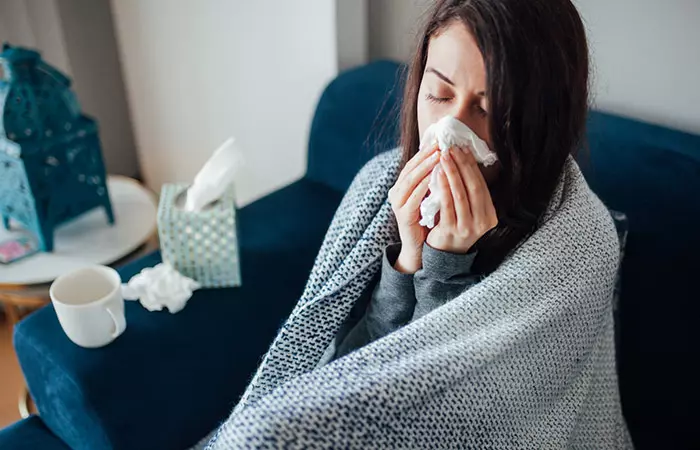
Winter illnesses include cold, cough, flu, bronchitis, dry and itchy skin. Most often, the diseases of winter, like Norovirus which is one of the most common gastrointestinal infections, are caused by viral infections. These cold and flu season diseases can be avoided by taking necessary precautions:
- Wear suitable clothes
- Cover your mouth and nose while sneezing or coughing
- Regularly wash your hands with soap and water
- Avoid exposure to illness at home or school
- Try wearing a mask when in a gathering or crowded places
- Have a balanced, healthy diet to build immunity
- If you have a pre-existing lung or respiratory infections, consult a specialist during the change of season
- Vaccination against flu may be considered for people at a high risk of getting flu and for people who are vulnerable like young children, pregnant women, people with chronic health conditions like asthma attacks, diabetes, heart and lung disease and people over 65 years
- Moisturise your skin regularly to prevent dry and itchy skin
Parth Vijayvergiya, a vlogger, provides detailed tips on how to survive the cold winters. The top tip, he says, is to layer up and use thermals and boots. He recommends buying warm pads and adds, “When I was in Sweden, while traveling in the Arctic Circle, I had warm pads in my glove and also on my foot, stuck under my foot, so that I would stay warm (i).”
Sherika, a blogger, recommends getting prepared for the winter with proper research and buying winter clothing and accessories. She writes, “I knew the importance of moisturizing the skin and having the moisturizers and lip balms ready. I forgot more often than I actually moisturized and so I was left with chapped hands, lips, and skin so bad that it actually split and bled (ii).”
 Quick Tip
Quick TipMonsoon:

Along with rains, monsoon brings a host of diseases. The dampness, slush and stagnant water are breeding grounds for a host of organisms and their vectors causing diseases such as malaria, diarrhea, typhoid, dengue,chikungunyai A viral infection transmitted to humans by mosquito bites that cause symptoms like fever and joint pain, which usually appear after a week. ,cholerai A bacterial infection that leads to severe diarrhea and dehydration caused due to the ingestion of contaminated food and water. , hepatitis A, stomach flu, viral diseases such as viral fever, conjunctivitis etc.
Many of the diseases of monsoon like malaria, dengue, and chikungunya are transmitted by insect bites. They usually breed in waterlogged places.
Cholera, typhoid, stomach infections, diarrhea and hepatitis A are water borne diseases, which usually spread through contaminated food and water.
Viral diseases are usually spread by air containing contaminated droplets of viruses released by infected people.
Take the precautions mentioned below to reduce the risk of contracting these diseases:
- Make sure that there are no pools of stagnant water. Keep water containers clean and ensure that flower containers and plates do not hold stagnant water.
- Use insect repellents to avoid being bitten by mosquitoes.
- Wash hands before eating
- Avoid eating in unhygienic places
- Drink boiled water
- Avoid exposure to people infected with viral diseases
Additionally, it is important to follow some practical steps to help protect yourself and your family and community from seasonal illnesses and promote overall well-being during these times. Learn more in the next section!
Public Health Guidance
- Get Vaccinated: Getting the right vaccines are recommended to protect against seasonal flus and other preventable illnesses. They are especially important for vulnerable groups, like the elderly and those with underlying health conditions.
- Practice Good Hygiene: Washing hands regularly with soap and water and using a hand sanitizer when soap isn’t available goes a long way in preventing the spread of germs.
- Stay Home When Sick: If you have symptoms of a seasonal illness, like fever or cough, stay at home to avoid spreading the illness to others.
- Maintain A Healthy Diet: Eat nutritious food rich in vitamins, like fruits and vegetables.
- Stay Hydrated: Drink plenty of clear fluids to stay hydrated, especially if you are sick.
- Cover Your Cough Or Sneeze: Use a tissue or your elbow to cover coughs and sneezes to prevent droplets from spreading.
- Keep Warm: Dress appropriately for the weather to prevent cold-related illnesses, especially during colder months.
- Boost Immunity: Regular exercise, adequate sleep, and stress management can all help keep your immune system strong.
- Seek Medical Advice Early: If you feel unwell, consult a healthcare provider immediately to manage symptoms and prevent complications.
- Follow Local Health Guidelines: Stay updated on local health recommendations and guidelines to prevent seasonal illnesses in your community.
Infographic: How To Keep Yourself Protected From Seasonal Diseases
Now that you’ve learned about seasonal diseases, here are some pointers to keep you disease-free. Simple steps like being aware of the seasonal conditions at a specific location can prevent the onslaught of seasonal ailments.
Check out the infographic below to learn how to protect yourself from seasonal diseases.

Illustration: StyleCraze Design Team
Every season is dominated by certain diseases that make their presence felt. While cases of malaria, dengue, diarrhea, typhoid, and sunstroke are reported heavily during summer, winter commonly brings illnesses like bronchitis, cold, cough, and flu. Similarly, the damp monsoons are conducive to the growth of organisms that cause malaria, diarrhea, dengue, chikungunya, cholera, hepatitis A, and viral fever, and spring brings with it severe allergic reactions. If you take the precautions for each season listed above, you will most likely escape from falling prey to seasonal diseases. Most importantly, eat immunity-boosting foods, keep your surroundings clean, maintain personal hygiene, and drink pure water. In case you do get sick, don’t rush for antibiotics. First, try some great home remedies that can help increase your immunity and make you feel better naturally. For example, you can drink ginger tea to treat a seasonal cold. However, seek medical attention immediately if your symptoms do not improve or worsen.
Frequently Asked Questions
Why do I get sick every time the season changes?
You get sick because of germs, not because of seasonal changes. Unfortunately, the temperature change creates the ideal environment for various types of viruses to develop and spread illnesses.
Why do I get sick every autumn?
Autumn is when many viral illnesses are most prevalent because of the cold weather’s potential to weaken your immune system and make you more susceptible to infections. The aged, children, and people with weakened immune systems are particularly vulnerable to viral infections because they can spread quickly during this season.
What is winter fever?
Pneumonia is also known as winter fever. It is a lung infection that causes flu-like symptoms such as high fever, cold, and cough.
Illustration: Seasonal Illnesses: Types Causes And Precautions To Take
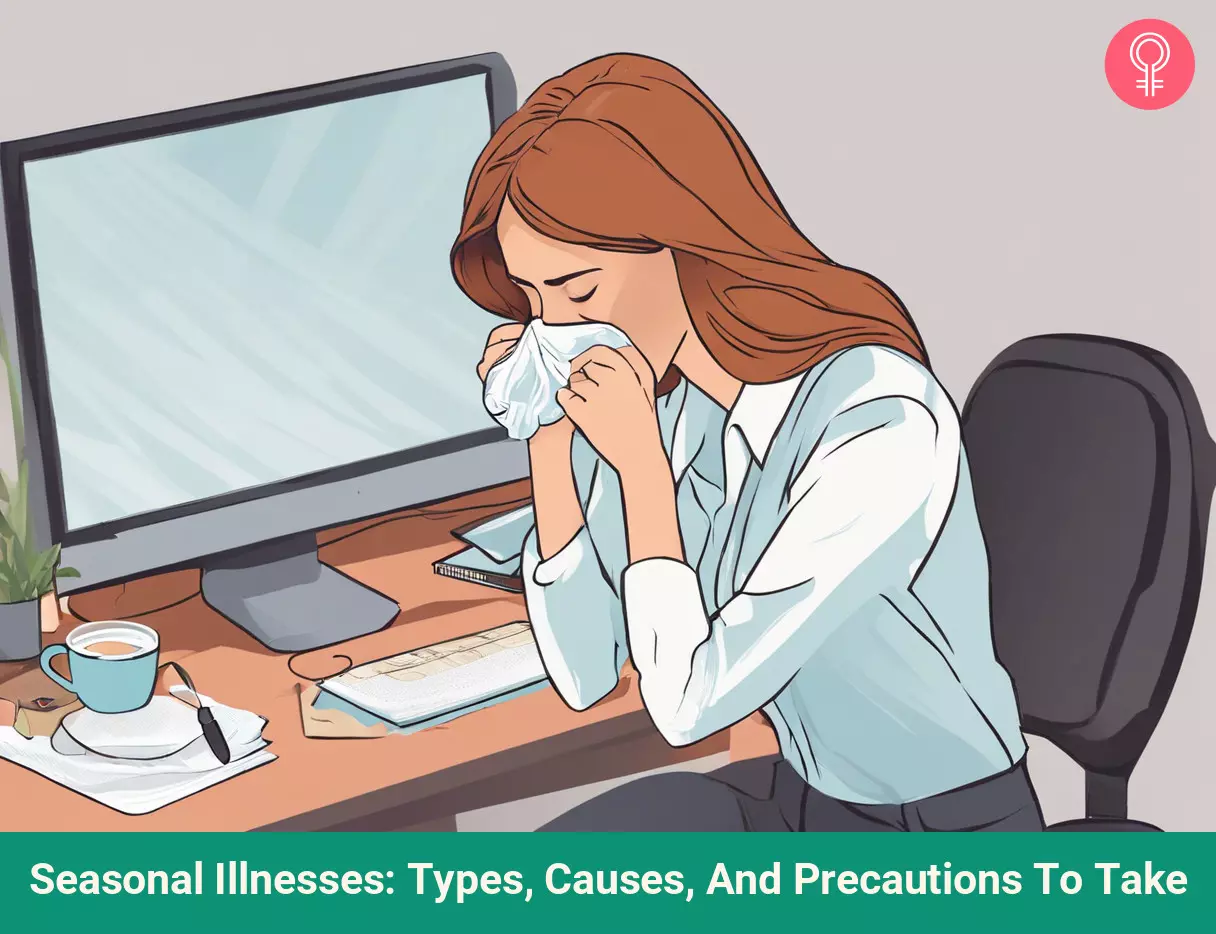
Image: Stable Diffusion/StyleCraze Design Team
Stay one step ahead of seasonal illnesses! Discover effective prevention strategies, immune-boosting tips, and natural remedies in this informative video. Arm yourself with knowledge and protect your health all year round. Play the video now!
Personal Experience: Source
StyleCraze's articles are interwoven with authentic personal narratives that provide depth and resonance to our content. Below are the sources of the personal accounts referenced in this article.
i. TIPS TO SURVIVE IN COLDEST WINTERS | -40°C temperatureshttps://www.youtube.com/watch?v=PI90abIzt8U
ii. How to survive your first winter, ever.
https://medium.com/@dashofpaprika/how-to-survive-your-first-winter-ever-281b4cda4dd9
Read full bio of Dr. Saba
Read full bio of Jyotsana Rao
Read full bio of Arshiya Syeda
Read full bio of Himanshi Mahajan






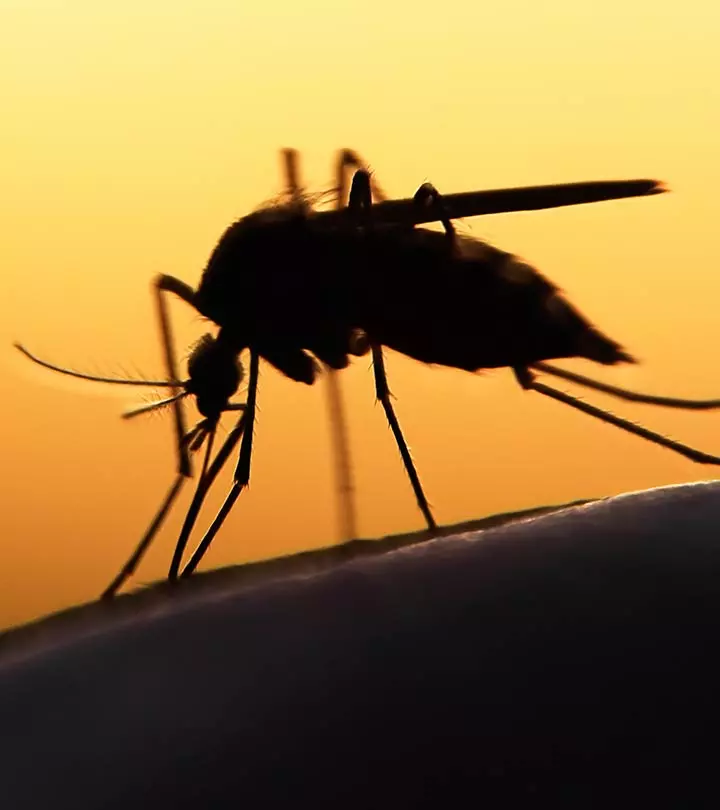




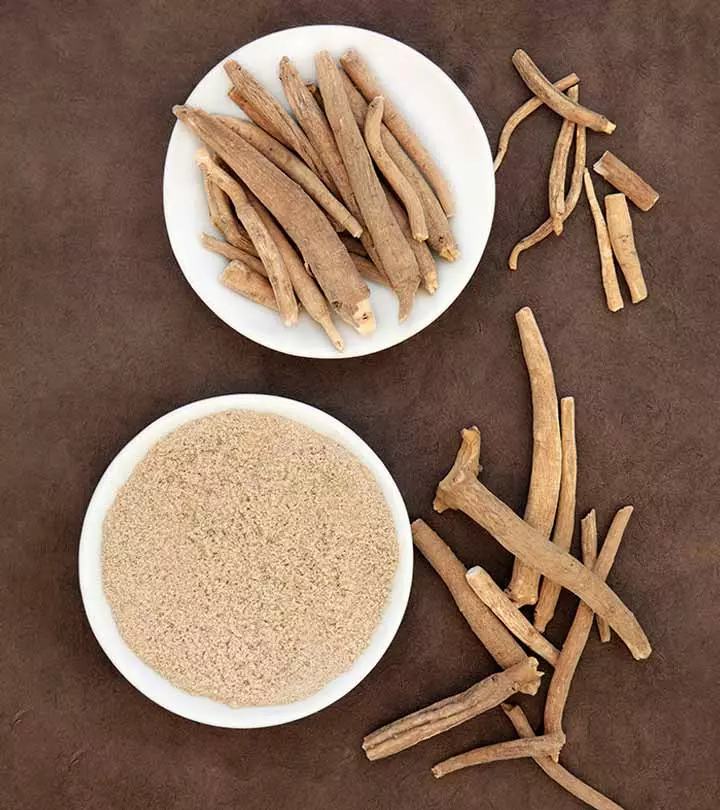

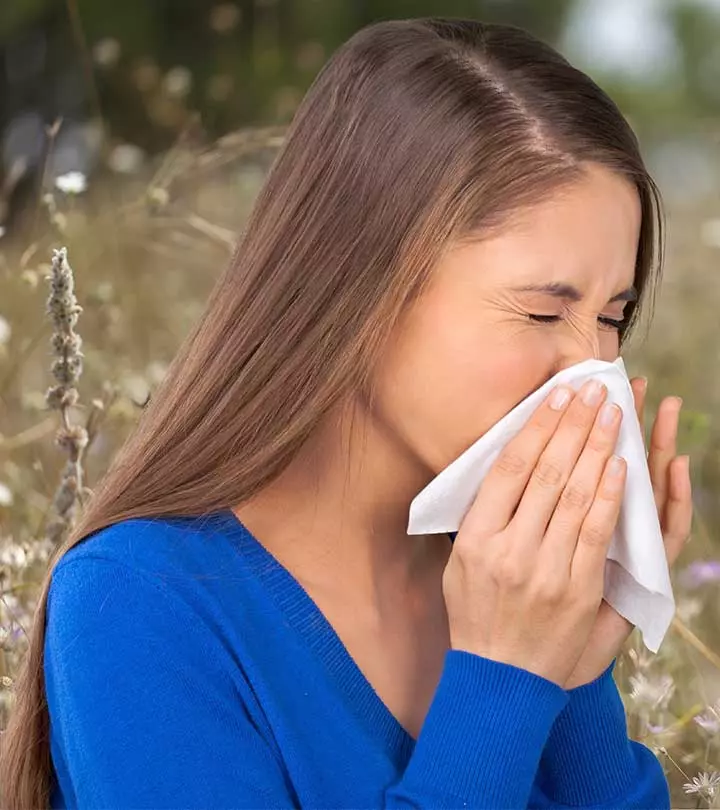






Community Experiences
Join the conversation and become a part of our empowering community! Share your stories, experiences, and insights to connect with other beauty, lifestyle, and health enthusiasts.